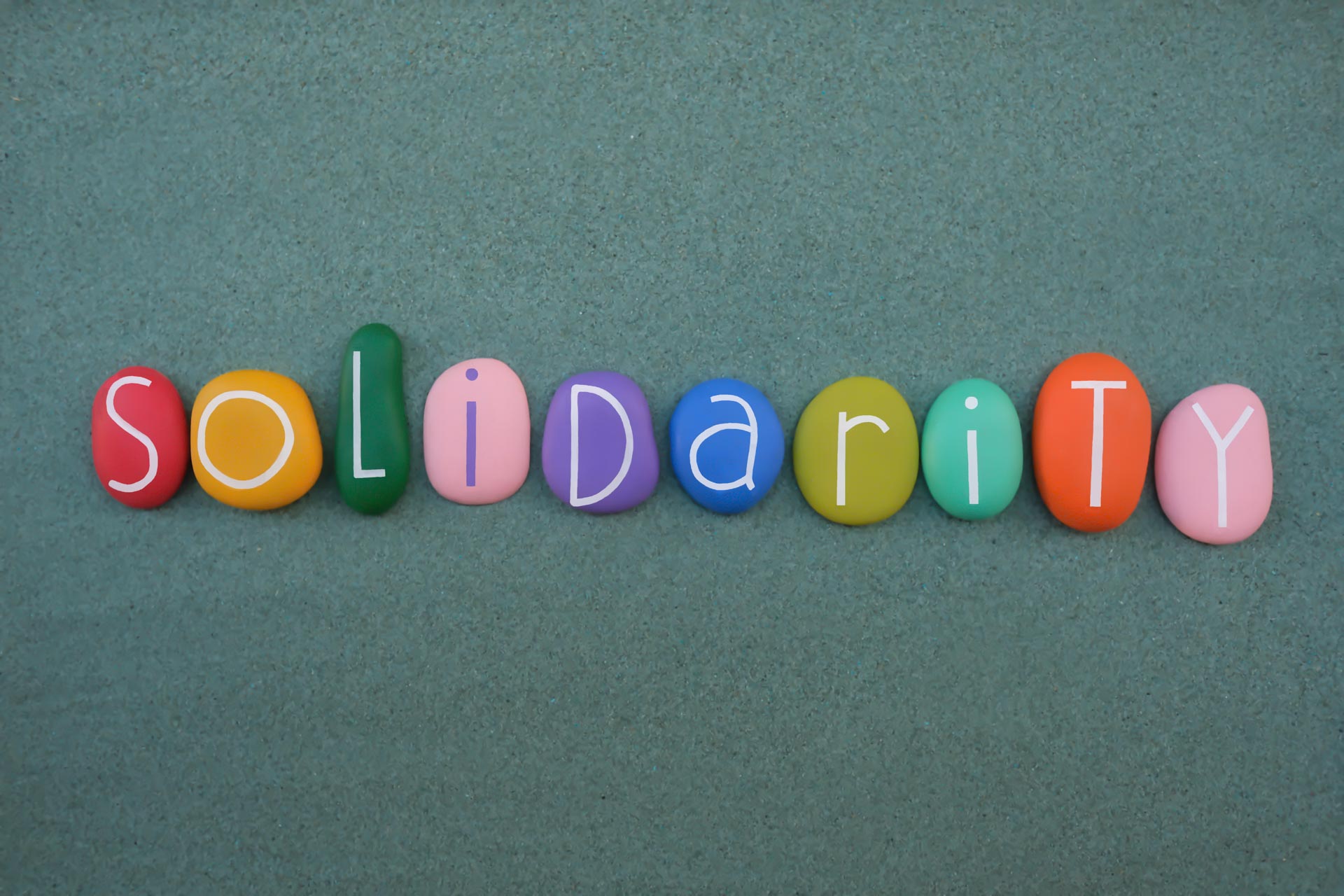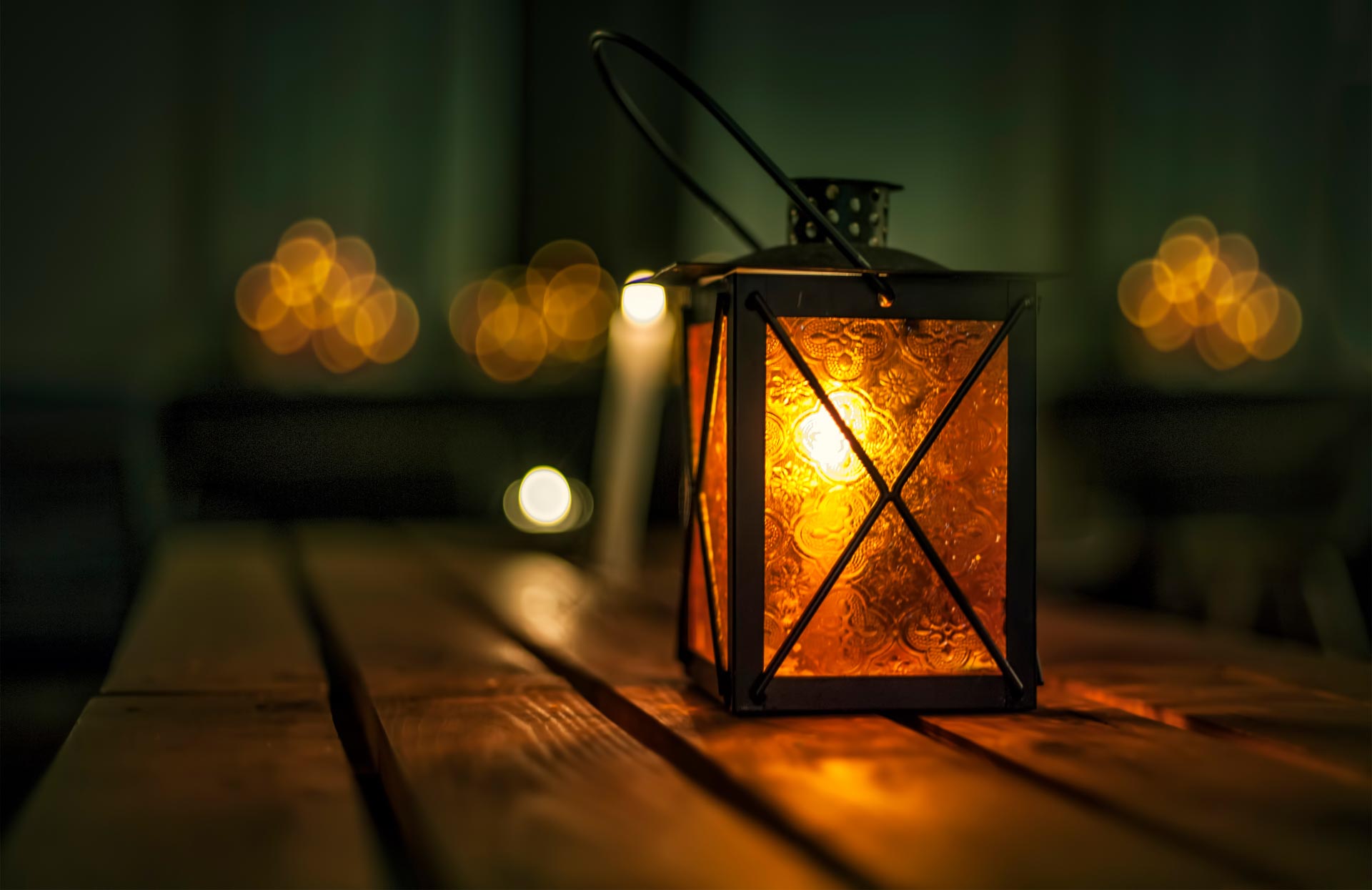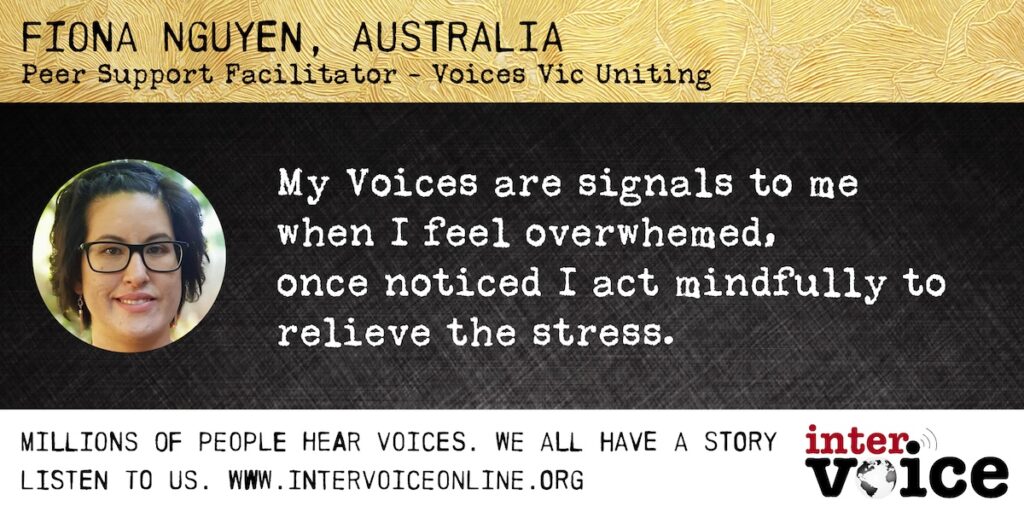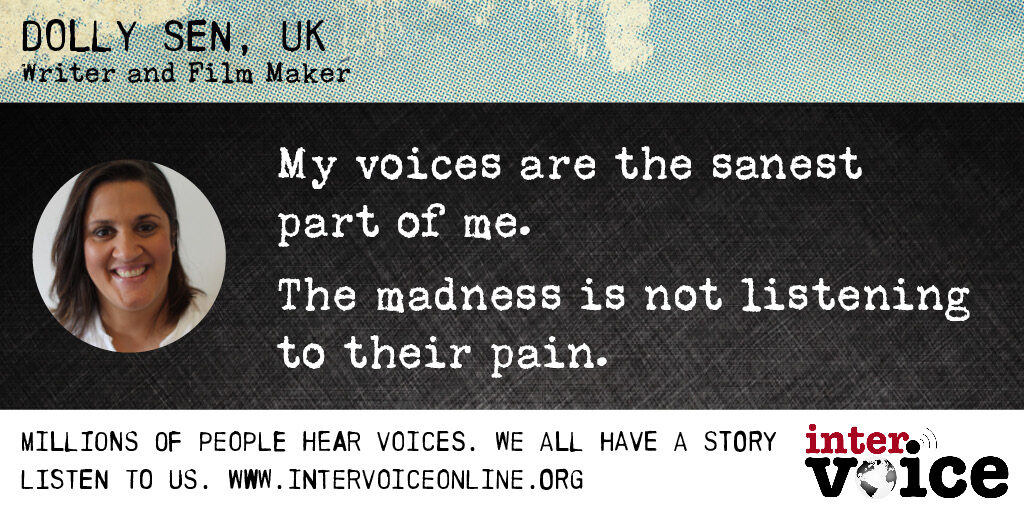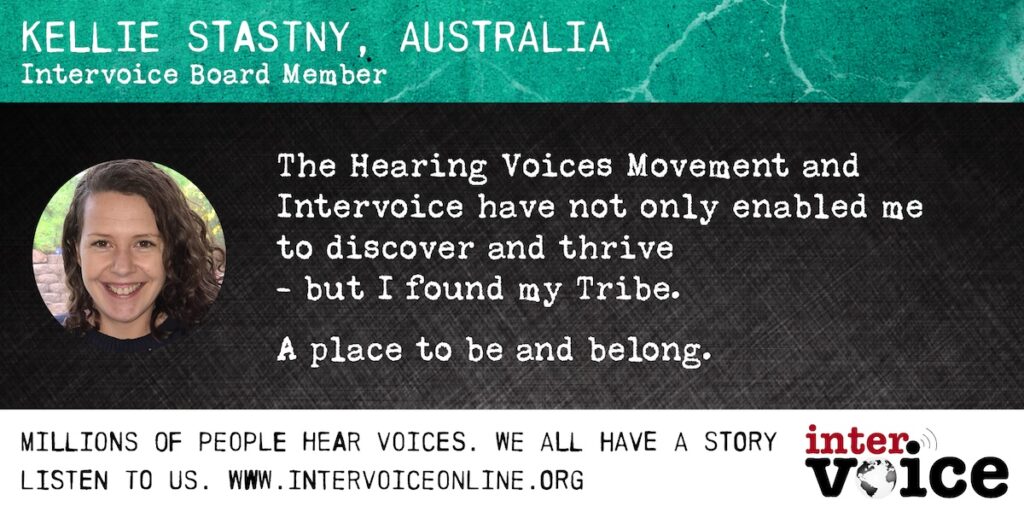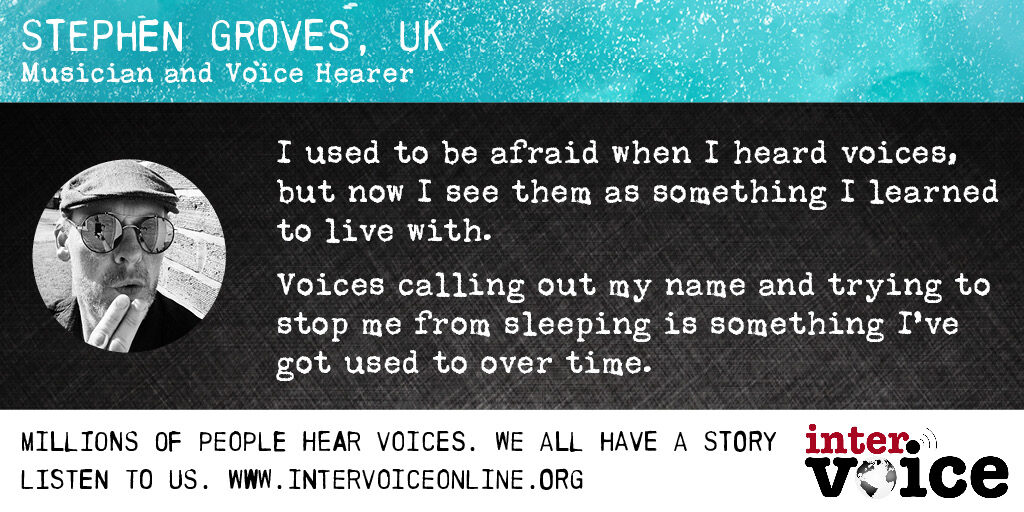Congress Workshops
Workshops Day One
Workshop 1: “Living with or without voices” (Anders Schakow)
“I would like to have a debate on different challenges that can occur due to not hearing voices anymore: loneliness, emotional expression and living without their guidance.”
Anders was a small child when he began hearing voices. He played with them and it was only when he was older that they began to turn negative, and he began to try to ignore them. He was 17 when he planned his own suicide, owing to a belief that people were going to have him kidnapped, tortured and killed. He believed the house was bugged and had hidden cameras. He spent a year in hospital and then three years in sheltered accommodation. He couldn’t walk anywhere alone, or take a bus, or even go to the basement to wash his own clothes.
Things began to change when he met Trevor Eyles (a psychiatric nurse and specialist in hearing voices). Anders joined a hearing voices group and, after some initial resistance, began trying to communicate with his negative voices. This took a whole year, but he began to make deals with the voices in order to find some peace. He learned the Voice Dialogue method from Dirk Corstens. The voices gradually began to disappear and 4 years ago they disappeared entirely and have not returned. Anders is interested in exploring whether life is better with them or without them. A year ago he started missing his voices because he’d broken up with his girlfriend and felt his voices would have provided some welcome company in the situation of being alone.
Anders now understands his voices as ‘sub-personalities’ (a concept he got from Dirk Corstens). Anders believes he can notice many different personalities of his own that he sometimes goes through being, in the space of just 5 minutes. A simple example would be the differences in voice, tone and manner which we adopt according to whether we happen to be talking to a child or an adult. Anders and his friend Elisabeth acted out some role play to demonstrate how both of them go through the different sub-personalities which each can trigger in the other.
Workshop 2: “Working creatively to communicate with voices” (Rachel Waddingham)
“This presentation shares some of the creative strategies I have used to communicate with, and relate to, the different voices I hear.”
When Rachel first heard of the hearing voices approach, she thought it was crazy. She was, after all ill (schizophrenic) and had been told that the voices were meaningless products of the disease. Terrified by her voices, her only coping strategy was high doses of medication. However, she began to attend a hearing voices group and lots of workshops and discovered that this didn’t have to be the end of the story. It was such a sensible approach and Rachel realised that recovery was possible, even though it was difficult to believe at first. Even though she became a group facilitator and helped many people to communicate with their voices, she was still unwilling to listen to her own voices but has found creative strategies that have transformed her relationship with her voices.
The workshop gave opportunities for people to also share their own experiences.
Workshop 3: “Lessons learned from the peer support movement in the USA” (Oryx Cohen & Will Hall)
Oryx and Will described the work of the Freedom Centre in Western Massachusetts which was established by them 12 years ago. Peer support has a long history in the US. Alcoholics Anonymous started there and was at first treated with great suspicion (as is the Hearing Voices movement now). However, it can take years of advocacy and grass roots pressure to make progress.
They stressed that isolation is the key to psychosis and peer support is the only way to reach many people. They called for advocacy and activism to lead to peer-run organizations. What was learned from the Western Massachusetts Recovery Learning Project was that many peer workers don’t avoid just joining the system so there needs to be clear values or ethos underpinning all work. They talked about the difficulty of workers not being co-opted by the system.
Berta Britz also talked about her experience of setting up groups in Pennsylvania, where there are now many trained peer specialists.
The workshop participants practised the principles of peer support.
Workshop 4: “Older people and hearing voices. A Cumbrian NHS service which has responded to voice hearers both with and without dementia.” (David Storm)
This workshop described the work of an Older Persons mental health service in North West England that took a different approach to working with older people who hear voices. Often, this is regarded as a symptom of a mental illness or of dementia. The team works closely with the person and their families to try to understand the origins of their voices and to find ways of helping to support them. They hope that this approach will develop so that services will become more positive and person-centred.
Workshop 5: “Reclaiming lives from hostile voices: Narrative Therapy Approaches” (David Denborough)
There is a long history of narrative therapy being used to assist voice hearers to reclaim their lives from hostile voices. This was a practical workshop that explained a number of narrative therapy practices that can be used in voice hearing groups. It was illustrated by reference to the work of Michael White in Australia in the 1990s which included a song “Power to our Journeys Group.” Stories were also shared from the Dulwich Centre Alternative Community Mental Health Project (London).
Workshops Day Two
Workshop 1: “Listening to Ambassadors of Forbidden Truth” (Rufus May, Flo Bellamy and Topdog)
“We can change the relationship with terrifying voices if we find ways to listen to the unmet needs they are pointing towards.”
This workshop described how to understand the important messages that hostile voices bring: by setting boundaries, dialoguing with them and learning from them. This work can be emotionally powerful and needs to be handled with sensitivity and care. The workshop considered how to support people to manage very strong emotions arising from relationships in their pasts and also how to move away from survival strategies that are no longer needed.
Workshop 2: “Is it normal to be different? Presentation of a documentary film about a network of two alternative self-help projects in Kenya.” (Caroline Von Taysen & Kanya Waithira)
This film “It is Normal to be Different” described the experience of setting up hearing voices groups in Kenya and brought home vividly the challenges that people face in an environment of poverty and in a culture where families will try to hide relatives who are different and where attending such a group can be stigmatizing. It needs a “slowly, slowly” approach. Despite these obstacles, the film was very upbeat and showed a vibrant and creative group of people. The group focuses on healing through artistic expression and mutual support and it offers a platform for people to exhibit their work and generate income from selling it.
Workshop 3: “ Peer Support and self-help” (Marissa Lambert & Karen Machin)
This practical workshop focused on addressing the question “who is a peer?”
Marissa and Karen work for a voluntary sector organisation, the Institute of Mental Health formed in Nottingham in 2006, as part of a team of nine including peer trainers, academics and admin support workers. They were here to tell us about their accredited peer support training module (an 11-day course, delivered over 6 weeks) developed in partnership with the NHS and Nottingham University. Marissa describes the aims of this course as being ‘to explore ways of working with people who’ve had different experiences from ourselves’. This bland-sounding mission turned out to contain a very powerful message, which Marissa presented via a simple graphic:
A man points at a green apple, and says: ‘You’re an orange!’ The apple begins to change its colour until it is orange all over. Then, in an alternative version of the same graphic, the man points at the green apple, says ‘You’re an orange!’ but the apple answers back: ‘No I’m not, I’m an apple!’ This metaphor proved useful in the ensuing conversation. For instance – suppose one member of a peer support group believes s/he has schizophrenia, and another wants to challenge the concept ‘schizophrenia’ – the situation for the peer support worker can be framed as: How can I help apples find ways of talking with oranges?
There was extensive discussion of language, particular around the word ‘peer’. Marissa suggested the word ‘peer’ implies a relationship based on:
- mutual experience
- shared experience of emotional/psychological pain
- equality
- the valuing of experiential knowledge
It was acknowledged that some people dislike the word, that it could be ambiguous whether it is shorthand for ‘service user’, and also that it is always relational (you cannot be a peer except in relation to another person). We reviewed a list of different, possibly interchangeable, terms – all similar – and realised in the process what a contentious and confusing situation exists in this area of terminology:
client, resident, consumer, customer, survivor, mentalist, peer, member, service avoider, service user’ patient, ex-patient, ex-service user, mad activist, expert by experience, participant.
Workshop 5: “A quiet revolution” (Matthew Morris & David Williams)
To introduce people to the potential and possibilities for change and influencing new ideas in their services.
Since the 1990s a small group of NHS staff in Suffolk (England) have been working to bring about a quiet revolution in relation to working with voice hearers. This gradual, influential approach is more likely to succeed in effecting change than by stirring up controversy and conflict.
This has been achieved so far by training and conferences. An “Introduction to working with voices,” course has been attended by over 300 staff and 450 people have attended two conferences.


